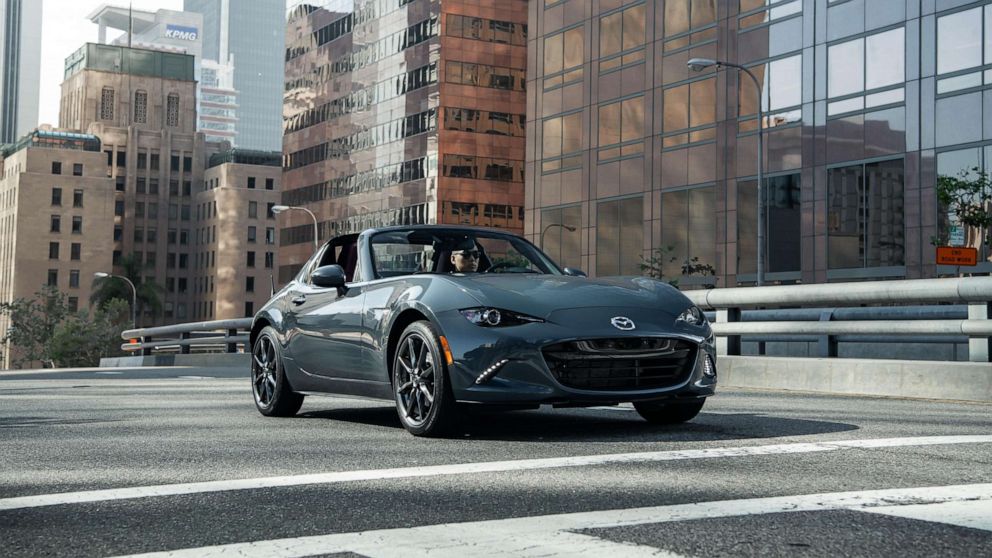New vehicles are bringing fun and 3 pedals back to drivers
Car enthusiasts had a lot to get excited about when Ford released images and details of its hotly anticipated 4X4 Bronco last month. For many, the best part of the serious off-roader, which was last on sale 24 years ago, was the SUV's seven-speed manual transmission.
"Customers have been asking for a long time to bring back the Bronco and a lot of them will spec the manual," Dave Pericak, director of Ford Icons, told ABC News. "A lot of people still love to control the gears especially when rock crawling. I am all for saving the manuals."
Three pedal driving took a hit when automatic transmissions started to offer better gas mileage, faster acceleration and the advanced driver assistance technology motorists have become dependent on.
But that didn't stop a small but growing number of gearheads to actively campaign for their return. The staff at Car and Driver magazine launched a "Save the Manuals" campaign in July 2010, urging drivers to join the crusade.
Eddie Alterman, the magazine's former editor-in-chief who now serves as chief brand officer at Hearst Autos, pleaded to readers that summer: "If folks learned to operate the entire car, not just the steering wheel and occasionally the brakes, I'd bet they'd like driving better. If they knew the excitement that accompanied a perfectly timed heel-toe downshift, I can guarantee they'd be hooked."
Today, manuals account for a tiny fraction of the automobile market -- a paltry 1.2% this year, according to data from Edmunds. In 2006, 143 out of 305 models in the U.S. were manuals. By 2016 the total was 63. This year? 41 out of 327 vehicles.
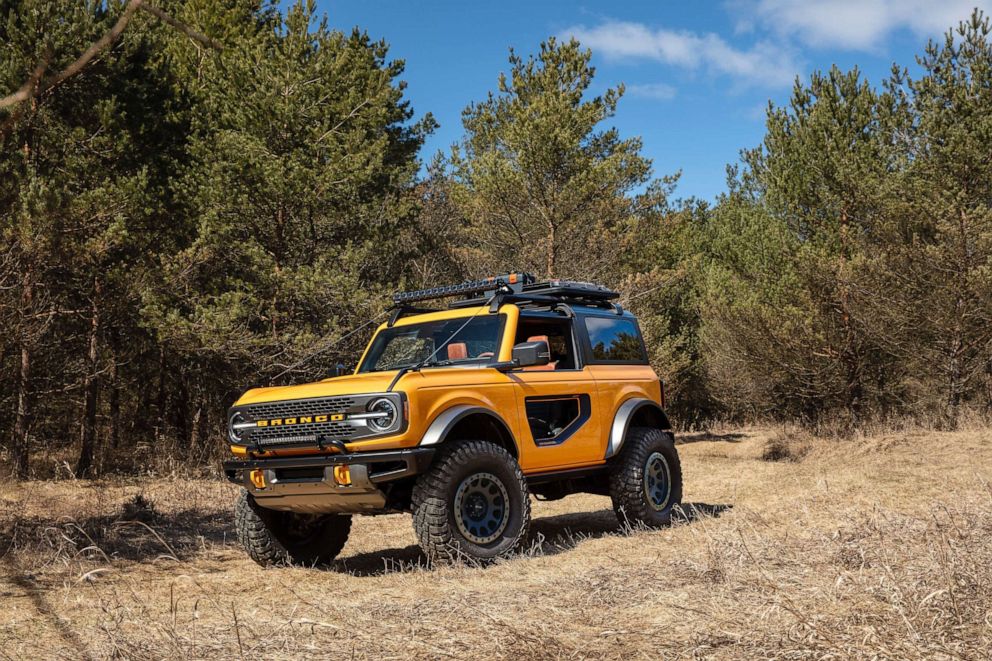
Chevrolet stunned enthusiasts when it opted for an automatic-only version of its 2020 Stingray Corvette. About 27% of sales of the previous generation Corvette were manuals.
In July, Genesis said it would discontinue its manual G70 starting with model year 2022. Honda announced last December it would no longer offer a manual transmission Accord. Supercars from Ferrari, Lamborghini and McLaren are only built with automatic transmissions.
Even as the number of manuals dwindle, a resurgence has taken hold among motorists who want a more engaging, fun and distraction-free driving experience.
MINI, the British automaker, pioneered its own movement in 2012 to boost popularity of manual transmission vehicles. There was the "Manualhood" spoof video and catchy slogans like "Buy Two Pedals, Get One Free," "Get Your Shift Together" and "Exhilaration on a Stick."
Patrick McKenna, MINI's head of product planning, said 20% of current customers choose manuals over automatics.
"Manuals have come a long way -- they're much more user friendly," he told ABC News. "We are super proud to offer a manual. There's no discussion in the company to cease manual production at this time."
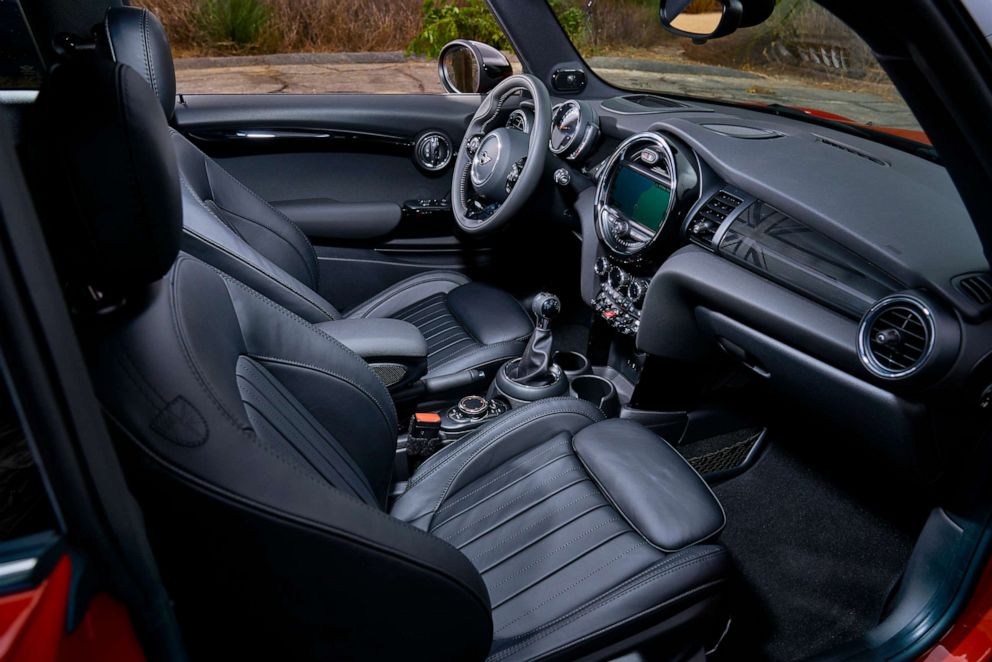
Luxury carmaker Aston Martin answered customer calls to build a manual sports car with its Vantage AMR. All 200 units sold out and interest was so high that Aston will now offer a manual gearbox for the Vantage going forward.
"It was our aim to have manuals as part of the Aston Martin sports car range, which we are happy to have achieved," Matt Bender, Aston's chief engineer, told ABC News. "It’s important to build a car with a manual transmission because it offers an additional level of driver engagement."
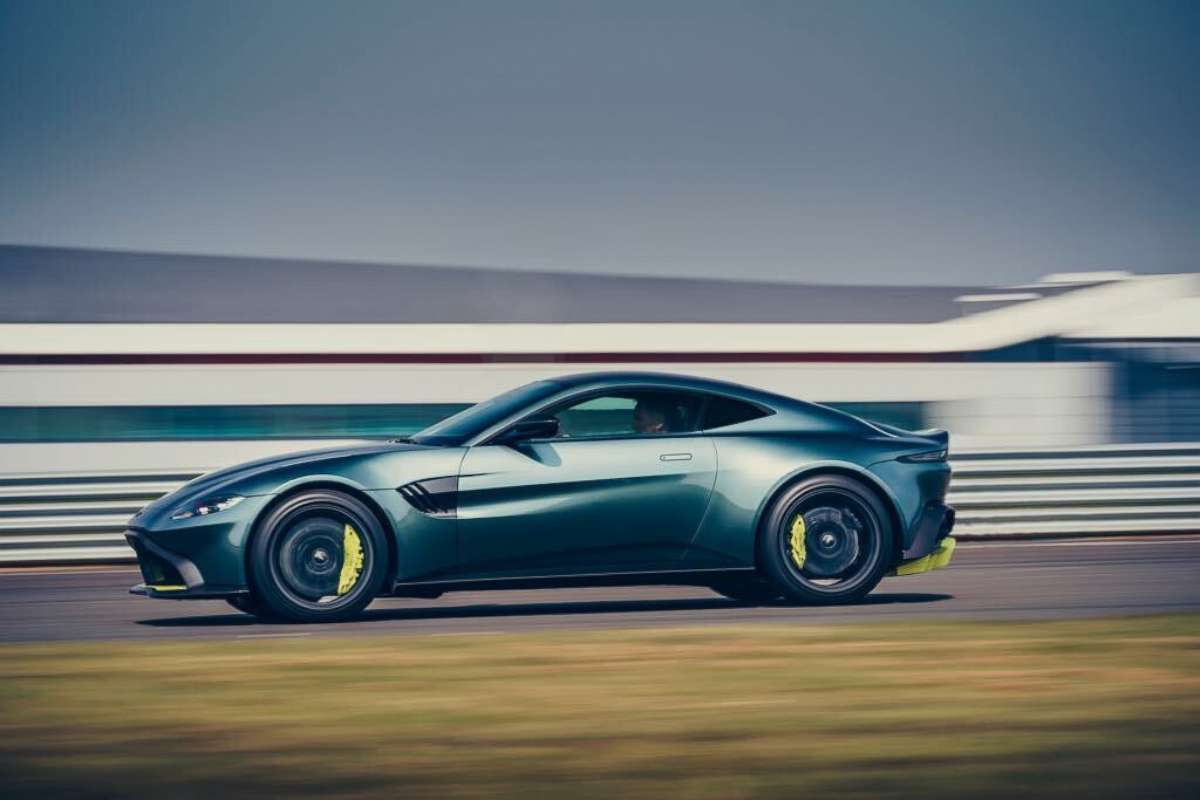
Porsche's 718 Boxster and 718 Cayman models come standard with a six-speed manual transmission. A seven-speed manual is available as a no-cost option on the 2021 911 Carrera S, 4S and Targa 4S, according to Frank Weissman, a product spokesperson at Porsche.
The German automaker sees a 20% take rate for its 2-door sports cars. That number jumps to 30% for Porsche's high-performance GTS models, Weissman noted.
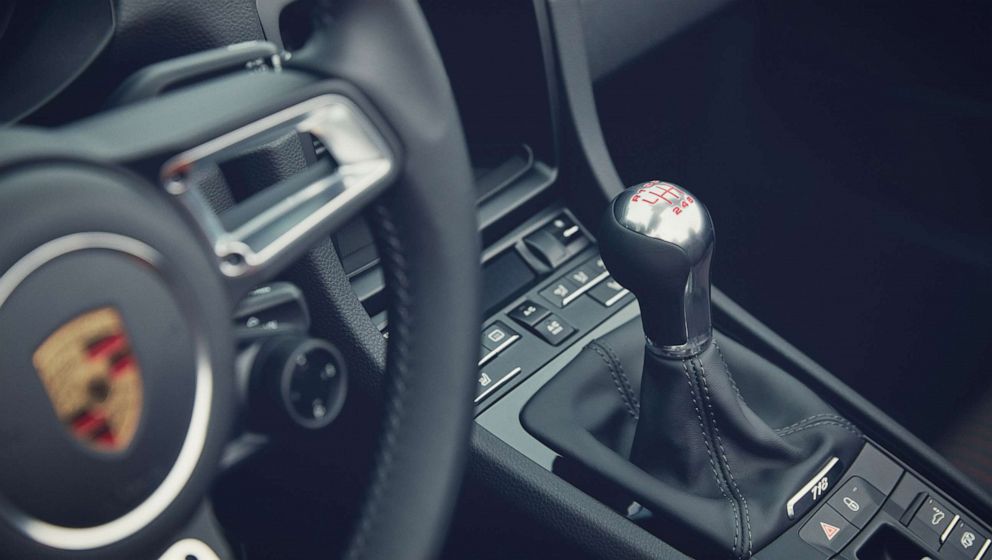
BMW's upcoming M3 car will be available with a manual transmission, adding to the current list of nine models. A decade ago BMW had 30 models with a manual transmission. By 2015 that number slipped to 14. Manuals, however, are still a core part of the brand, according to Oleg Satanovsky, a product spokesperson at BMW.
"Enthusiasts, especially BMW M customers, are vocal in their support of the continued availability of manual transmissions and back it up when it comes time to buy," Satanovsky told ABC News. "Approximately half of BMW M2 customers choose manual transmissions."
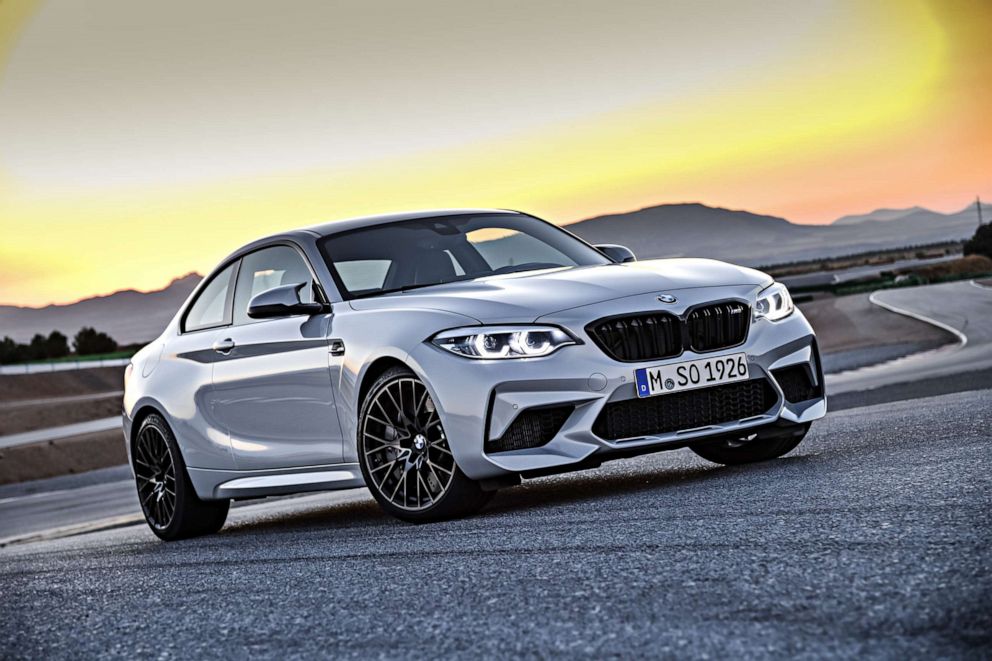
Honda's Civic Type R, which debuted three years ago and is only available with a manual transmission, has the highest percentage of millennial buyers of any Honda vehicle, according to James Jenkins, a spokesperson for the Japanese marque.
Jenkins drives the sporty hatchback with two children's car seats strapped in the back as his daily ride. The Type R, which is designed for the track and local roads, has helped boost Honda's market share of manuals, which also includes the Civic Si. One in four manuals sold in the U.S. are Hondas, he said.
"The Civic brand is super strong for Honda, especially in a world of SUVs," he told ABC News. "It's bringing a young buyer to the company. Honda is committed to manuals."
Jenkins pointed out that recent technology has removed the No. 1 fear for skilled and novice manual drivers alike: starting from first gear on a hill.
"Driving a manual has never been easier in its history, now with the help of hill hold assist," he said. "When you pump the brake -- even on San Francisco's Lombard Street -- and keep your foot on the clutch, you won't roll backwards."

Toyota received its fair share of criticism by fans and automotive journalists alike when it decided against a manual transmission Supra.
"There's a lot of people who talk about [manuals] but don't buy them," Ben Haushalter, a senior manager of product planning at Toyota, told ABC News. "Manuals have been on the decline in the industry for the last 12 years."
Toyota does offer four models with a manual -- the Corolla, Corolla Hatchback, Tacoma pickup and 86, a sports car that's been around since 2012 and has an impressive take rate of 45% for the manual version.
Rory Carroll, editor-in-chief of Jalopnik, has taught 35 people and counting how to drive a stick shift, including his wife, his wife's friends, coworkers and interns. Access to a manual transmission vehicle may be the biggest factor squelching sales, he argued.
"I know a lot of people who are in their 30s who want to learn but never had an opportunity," he told ABC News. "The interest in manual transmissions and the driving experience is really strong."
Carroll acknowledged that the learning curve for driving a manual can be steep.
"It takes time. There's no immediate gratification," he said. "I won't say you won't screw up and stall or have an embarrassing moment ... but it's more rewarding because it's slightly more complex set of skills you're mastering."
Older manual cars in particular are experiencing a revival from enthusiasts.
"Buyers want the cars that are rarer and more fun to drive -- the ones with the manual," Eric Minoff, a specialist in the motoring department at Bonhams, told ABC News. "This is especially true in Ferraris. In any model where an automatic (or clutchless manual) was an option, the manual transmission has become much more desirable."
Doug DeMuro, a car aficionado whose YouTube channel has 3.56 million subscribers, said manuals are increasingly becoming a hard sell with new drivers. Knowing how to drive a manual was useful when renting a car in Europe. That's no longer the case, he noted.
"Yes, you can exploit the whole engine range [in a manual] and there's certainly an enjoyment aspect that people miss out on," he told ABC News. "I try to be a realist. This may be it for manuals. No young person will want a manual when they can have an automatic that's relatively inexpensive."
He went on, "I live in the land of traffic in Southern California and I don't want to drive a manual car."
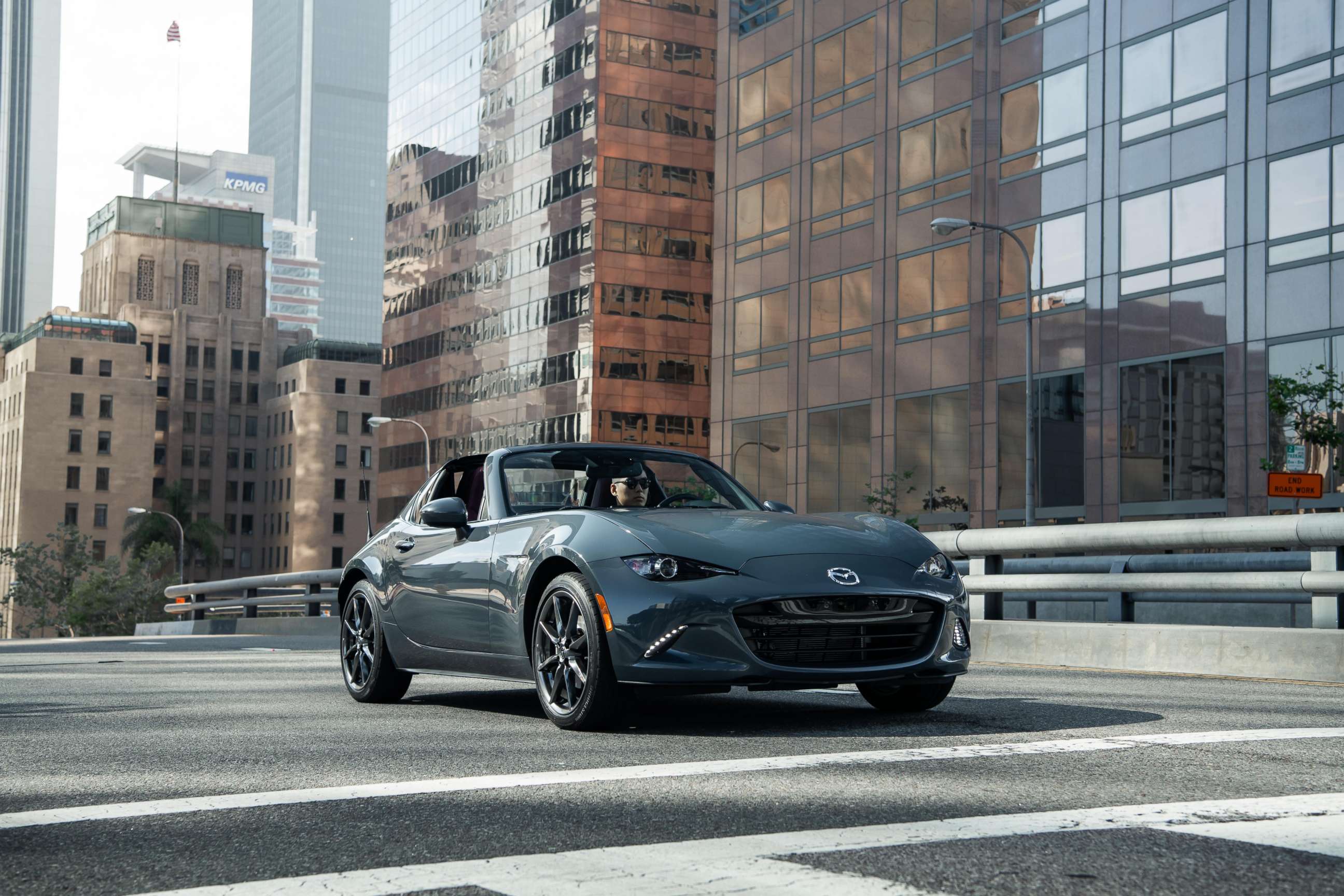
Of course, not being able to drive a manual begs the question: Can someone call themselves a true car enthusiast?
"I am not for being exclusionary," Sharon Carty, the current editor-in-chief of Car and Driver, told ABC News. "The umbrella for who can be a car enthusiast can be very large."
She said her magazine's campaign failed to lure drivers to manuals though she encourages those who are eager to learn to still take on the challenge.
"The industry is looking for places to save money and mass production is cheaper," she said. "It does not make financial sense to build manual transmissions."
Manuals still have one important advantage over automatic transmissions: control and awareness of the road.
"You can't eat a burger or text driving stick -- it's much safer and you're far more engaged," said Ivan Drury, senior manager of insights at Edmunds. "They will always exist but not everyone will know how to drive one."
And the odds of having your manual vehicle stolen is slim to none, he added.
Carroll said he gets to test-drive some of the most exotic supercars in the world on racetracks. Yet driving a $23,000 manual Miata can offer the same kind of excitement, he said.
"It's something I'd recommend to anyone," he said. "Manuals are an entirely different dimension of fun. There's a satisfaction in mastering and working a clutch."
